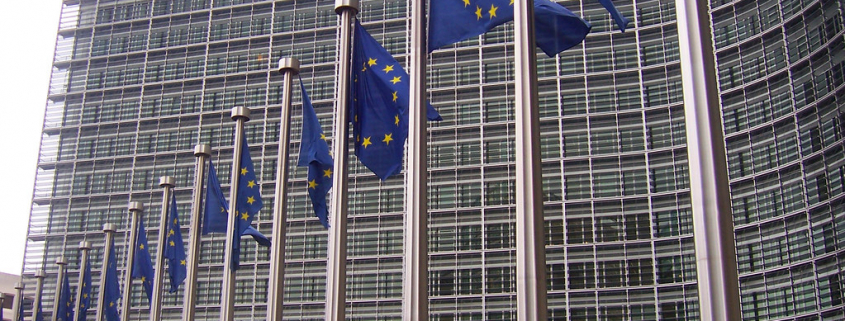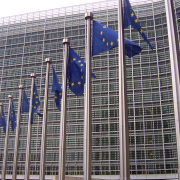COMMISSION IMPLEMENTING REGULATION (EU) 2021/1379
of 19 August 2021
concerning the non-renewal of approval of the active substance famoxadone, in accordance with Regulation (EC) No 1107/2009 of the European Parliament and of the Council concerning the placing of plant protection products on the market, and amending Commission Implementing Regulation (EU) No 540/2011
(Text with EEA relevance)
THE EUROPEAN COMMISSION,
Having regard to the Treaty on the Functioning of the European Union,
Having regard to Regulation (EC) No 1107/2009 of the European Parliament and of the Council of 21 October 2009 concerning the placing of plant protection products on the market and repealing Council Directives 79/117/EEC and 91/414/EEC (1), and in particular Article 20(1) and Article 78(2) thereof,
Whereas:
|
(1) |
Commission Directive 2002/64/EC (2) included famoxadone as an active substance in Annex I to Council Directive 91/414/EEC (3). |
|
(2) |
Active substances included in Annex I to Directive 91/414/EEC are deemed to have been approved under Regulation (EC) No 1107/2009 and are listed in Part A of the Annex to Commission Implementing Regulation (EU) No 540/2011 (4). |
|
(3) |
The approval of the active substance famoxadone, as set out in Part A of the Annex to Implementing Regulation (EU) No 540/2011, expires on 30 June 2022. |
|
(4) |
An application for the renewal of the approval of famoxadone was submitted in accordance with Article 4 of Commission Implementing Regulation (EU) No 1141/2010 (5) within the time period provided for in that Article. |
|
(5) |
The applicant submitted the supplementary dossiers required in accordance with Article 9 of Implementing Regulation (EU) No 1141/2010. The application was found to be complete by the rapporteur Member State. |
|
(6) |
The rapporteur Member State prepared a renewal assessment report in consultation with the co-rapporteur Member State and submitted it to the European Food Safety Authority (‘the Authority’) and the Commission on 15 July 2014. |
|
(7) |
The Authority communicated the renewal assessment report to the applicant and to the Member States for comments and forwarded the comments received to the Commission. The Authority also made the supplementary summary dossier available to the public. |
|
(8) |
On 3 July 2015 the Authority communicated to the Commission its conclusion (6) on whether famoxadone can be expected to meet the approval criteria provided for in Article 4 of Regulation (EC) No 1107/2009. The Authority concluded that there is a high potential for all the representative uses assessed to exceed the acceptable operator exposure level (‘AOEL’) for workers during crop hand-harvesting even with the use of personal protective equipment (‘PPE’). The Authority further concluded that there is a high long-term risk for mammals and high risk for aquatic organisms from the use of famoxadone. In addition, the Authority stated that the available information is insufficient to conclude on the the long-term risk assessments for birds. |
|
(9) |
The Commission invited the applicant to submit its comments on the conclusion of the Authority and, in accordance with Article 17(1) of Implementing Regulation (EU) No 1141/2010, on the draft review report. The applicant submitted its comments, which have been carefully examined. |
|
(10) |
However, despite the arguments put forward by the applicant, the concerns related to the substance could not be eliminated. |
|
(11) |
Consequently, it has not been established with respect to one or more representative uses of at least one plant protection product that the approval criteria provided for in Article 4 of Regulation (EC) No 1107/2009 are satisfied. It is therefore appropriate not to renew the approval of the active substance famoxadone in accordance with Article 20(1)(b) of that Regulation. |
|
(12) |
Implementing Regulation (EU) No 540/2011 should therefore be amended accordingly. |
|
(13) |
Member States should be allowed sufficient time to withdraw authorisations for plant protection products containing famoxadone. |
|
(14) |
For plant protection products containing famoxadone, where Member States grant any grace period in accordance with Article 46 of Regulation (EC) No 1107/2009, that period should be as short as possible and not exceed 12 months from the date of entry into force of this Regulation. |
|
(15) |
Implementing Regulation (EU) 2021/745 (7) extended the approval period of famoxadone to 30 June 2022 in order to allow the renewal process to be completed before the expiry of the approval period of that active substance. However, given that a decision on renewal has been taken ahead of that extended expiry date, this Regulation should start to apply earlier than that date. |
|
(16) |
This Regulation does not prevent the submission of a further application for the approval of famoxadone pursuant to Article 7 of Regulation (EC) No 1107/2009. |
|
(17) |
The measures provided for in this Regulation are in accordance with the opinion of the Standing Committee on Plants, Animals, Food and Feed, |
HAS ADOPTED THIS REGULATION:
Article 1
Non-renewal of approval of active substance
The approval of the active substance famoxadone is not renewed.
Article 2
Amendment to Implementing Regulation (EU) No 540/2011
In Part A of the Annex to Implementing Regulation (EU) No 540/2011, row 35, on famoxadone, is deleted.
Article 3
Transitional measures
Member States shall withdraw authorisations for plant protection products containing famoxadone as active substance by 16 March 2022.
Article 4
Grace period
Any grace period granted by Member States in accordance with Article 46 of Regulation (EC) No 1107/2009 shall expire by 16 September 2022.
Article 5
Entry into force
This Regulation shall enter into force on the twentieth day following that of its publication in the Official Journal of the European Union.
This Regulation shall be binding in its entirety and directly applicable in all Member States.
Done at Brussels, 19 August 2021.
For the Commission
The President
Ursula VON DER LEYEN
(1) OJ L 309, 24.11.2009, p. 1.
(2) Commission Directive 2002/64/EC of 15 July 2002 amending Council Directive 91/414/EEC to include cinidon-ethyl, cyhalofop butyl, famoxadone, florasulam, metalaxyl-M and picolinafen as active substances (OJ L 189, 18.7.2002, p. 31).
(3) Council Directive 91/414/EEC of 15 July 1991 concerning the placing of plant protection products on the market (OJ L 230, 19.8.1991, p. 1).
(4) Commission Implementing Regulation (EU) No 540/2011 of 25 May 2011 implementing Regulation (EC) No 1107/2009 of the European Parliament and of the Council as regards the list of approved active substances (OJ L 153, 11.6.2011, p. 1).
(5) Commission Regulation (EU) No 1141/2010 of 7 December 2010 laying down the procedure for the renewal of the inclusion of a second group of active substances in Annex I to Council Directive 91/414/EEC and establishing the list of those substances (OJ L 322, 8.12.2010, p. 10).
(6) Conclusion on the peer review of the pesticide risk assessment of the active substance famoxadone. EFSA Journal 2015;13(7):4194, 116 pp. doi:10.2903/j.efsa.2015.4194.
(7) Commission Implementing Regulation (EU) 2021/745 of 6 May 2021 amending Implementing Regulation (EU) No 540/2011 as regards the extension of the approval periods of the active substances aluminium ammonium sulphate, aluminium silicate, beflubutamid, benthiavalicarb, bifenazate, boscalid, calcium carbonate, captan, carbon dioxide, cymoxanil, dimethomorph, ethephon, extract from tea tree, famoxadone, fat distilation residues, fatty acids C7 to C20, flumioxazine, fluoxastrobin, flurochloridone, folpet, formetanate, gibberellic acid, gibberellins, heptamaloxyloglucan, hydrolysed proteins, iron sulphate, metazachlor, metribuzin, milbemectin, Paecilomyces lilacinus strain 251, phenmedipham, phosmet, pirimiphos-methyl, plant oils/rape seed oil, potassium hydrogen carbonate, propamocarb, prothioconazole, quartz sand, fish oil, repellents by smell of animal or plant origin/sheep fat, S-metolachlor, Straight Chain Lepidopteran Pheromones, tebuconazole and urea (OJ L 160, 7.5.2021, p. 89).
Source: EU Pesticides database
Image source: “Banderas Europeas en el Berlaymont (Bruselas)” by Amio Cajander. is marked with CC BY-SA 2.0.



